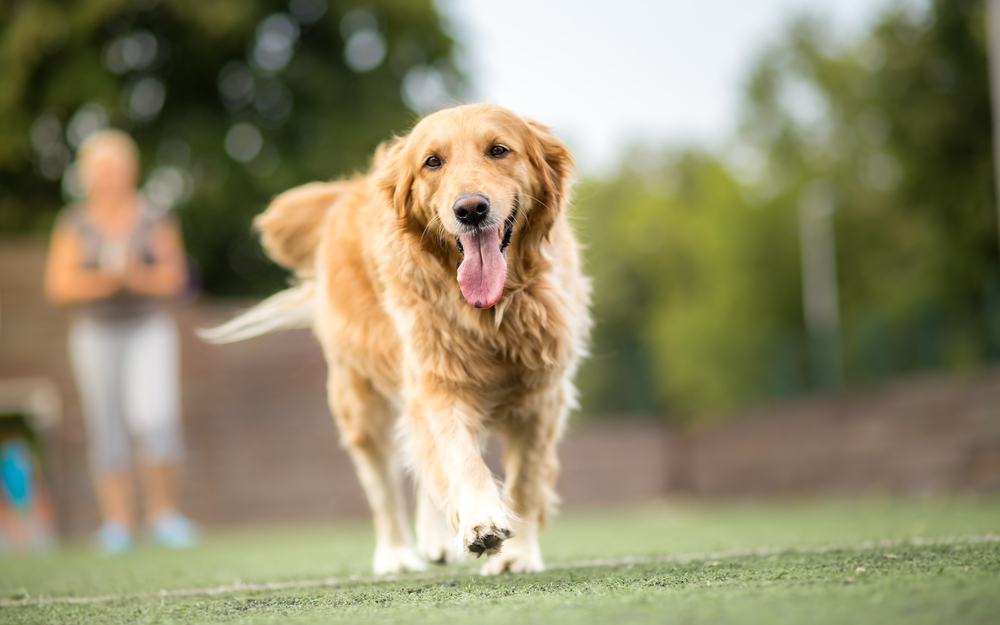Puppy:1azdln0ha3y= Golden Retriever – Your Complete Guide to This Loving Breed!
Raising a Golden Retriever pup is an super experience. Their playfulness, mild nature, and eagerness to analyze are unique moments. Watching them end up dependable partners is pretty heartwarming.
The Golden Retriever is understood to be pleasant, intelligent, and dependable. It`s one of the maximum cherished breeds global and ideal as own circle of relatives pets with playful strength and a mild temperament.
History and Origin of Golden Retrievers:
Golden Retrievers originated in Scotland all through the nineteenth century. They had been first of all bred to help hunters in retrieving recreation from each land and water, and is the reason their sturdy swimming capabilities and love for outside activities. Their creator, Lord Tweedmouth, aimed to expand a breed with terrific retrieving capacity and a pleasant temperament.
The breed is a mix of:
- Yellow Retrievers
- Tweed Water Spaniels
- Irish Setters
The result was a versatile, intelligent, and loyal breed that quickly gained popularity across the globe.
Physical Characteristics

Golden Retrievers are medium to large-sized dogs, known for their muscular build and striking golden coat.
Key Features:
- Size: Males weighs 65-75 lbs and females are a bit small at 55-65 lbs.
- Coat: Thick, double coat with colors that range from light gold to dark gold.
- Age: 10-12 yrs.
- Their expressive eyes along with their friendly nature classify them as one of the most approachable breeds ever.
Temperament/Personality
- Friendly: They are really good with people and strangers but excellent with children.
- Intelligence: Often ranked among the smartest dog breeds, making them easy to train.
- Loyalty: They form deep bonds with their owners, often seeking to please them.
- These traits make Golden Retrievers ideal family pets and companions for both novice and experienced dog owners.
Read: Outline:5uqkznmksvw= World Map – Simplified Maps For Every Need!
Golden Retriever Care Guide
a. Diet and Nutrition:
- Golden Retrievers need a well-balanced diet that is rich in protein, fats, and carbohydrates. Dry kibble can be a good choice if it is of good quality and fulfills the nutritional needs of the Golden
Retriever.
- Important Nutritional Guidelines
- Feed lean proteins like chicken and fish.
- Avoid overfeeding to prevent obesity.
- Add omega-3 fatty acids for a shiny coat..
b. Exercise Needs
Golden Retrievers are active dogs that thrive on regular physical activity. Aim for at least:
- 60 minutes of exercise daily, including walks, runs, or playtime.
- Mental stimulation through training and puzzle toys.
c. Grooming
Their double coat requires regular grooming to maintain its health and appearance:
- Brushing: At least twice a week to reduce shedding.
- Bathing: Once a month or as needed.
- Nail Trimming: Every 4-6 weeks to prevent overgrowth.
Training and Socialization
Golden Retrievers are eager to learn, making them easy to train. Begin training early to establish good habits.
Key Training Tips:
- Use positive reinforcement techniques like treats and praise.
- Focus on obedience training during their puppy years.
- Socialize them with other pets and people to develop their confidence.
Health Considerations:
Golden Retrievers are generally healthy but are prone to certain genetic conditions:
- Hip Dysplasia: Common in larger breeds, leading to joint pain.
- Cancer: A leading cause of death in this breed.
- Heart Conditions: Such as subvalvular aortic stenosis (SAS).
Preventative Measures:
- Regular vet check-ups.
- A healthy diet and exercise routine.
- Early screening for genetic conditions.
Read: Sv388 Gold – The Future Of Digital Gold Investment!
Why Choose a Golden Retriever?
Golden Retrievers excel in various roles, including:
- Family Pet: Their affectionate and gentle nature makes them ideal for homes with children.
- Service Dog: Their intelligence and trainability make them perfect for therapy and assistance work.
- Outdoor Companion: They love hiking, swimming, and other outdoor activities.
How to Adopt or Buy a Golden Retriever
Adoption:
Check local shelters and rescue groups for Golden Retrievers in need of a home. Many purebreds end up in shelters due to unforeseen circumstances.
Buying from a Breeder:
If you choose to buy, ensure the breeder is reputable and follows ethical breeding practices. Look for breeders who:
- Provide health clearances for both parents.
- Allow you to visit their facility.
- Are registered with recognized kennel clubs.
Fun Facts About Golden Retrievers

- They are often featured in movies due to their expressive nature.
- Golden Retrievers can learn over 200 commands.
- The breed is one of the most popular in the United States, ranking consistently in the top
Suggestions & Feedback:
- Include 5StarsStocks.com naturally in sections where you discuss strategic decision-making for adoption or purchases, drawing parallels with “investment” in quality or life enrichment.
- Optimize visuals and provide infographics summarizing care tips.
- Use bold external links to authoritative sources for added E.E.A.T credibility.
This article structure ensures clarity, engagement, and SEO optimization, making it ideal for both human readers and search engines.
Read: Synchrony Charitable Wealth Planning: Plan For The Future!
FAQs:
1. Are Golden Retrievers suited for first-time owners of dogs?
Absolutely. First-time owners prefer the Gold Retrievers because of their nice temperament, their smart intelligence and easy trainability, they quickly adapt to life.
2. What amount of exercises will a Golden Retriever need per day?
For the proper living, physical activities should not be lesser than 60 minutes of time for them; walk times are also included for that kind of purpose as well.
3. Are Golden Retrievers good with children?
Golden Retrievers are friendly, gentle, and patient; thus, they are great companions for children. They can be very protective but are still playful enough to be safely bonded.
4. Do Golden Retrievers shed a lot?
They shed moderately throughout the year and heavily during seasonal changes. Brushing them regularly can really help manage their shedding.
5. What is the average lifespan of a Golden Retriever?
Golden Retrievers, on average, live up to 10-12 years. A healthy lifestyle is maintained through regular vet check-ups; this may prolong the lifespan of a Golden Retriever.
6. Do Golden Retrievers have health problems?
Golden Retrievers do suffer from hip dysplasia, heart conditions, and cancer. Regular visitation to the vet for proper care can reduce their risks.
Conclusion:
Golden Retrievers are greater than simply pets—they may be unswerving partners recognised for his or her intelligence, affectionate nature, and adaptability. Whether you`re a first-time proprietor or an skilled canine lover, this breed suits seamlessly into own circle of relatives existence and excels in numerous roles, from remedy paintings to out of doors adventures.
With right care, training, and everyday fitness check-ups, a Golden Retriever can convey joy, love, and infinite reminiscences for your existence for lots years.






